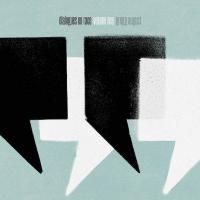Dialogues on Race Volume One Is The Emmett Till Story Set to Unforgettable Music
And so it went until he brought up BLM and began reciting all of the Fox News talking points he’d absorbed. I asked him if he knew who Tamir Rice was. He didn’t. I asked if he knew who Rod Carew was. He said “Yes, great baseball player, love him.” I asked him if he knew Carew’s story about driving a nice car and being hassled in Minnesota by white cops and fearing he’d get shot if he reached too quickly for his wallet. He didn’t. I told him. It’s a pretty scary story you can read here.
I didn’t tell him that we’d bought our home in the very nice and mostly white Township of Wyckoff, NJ from a Black couple (who then moved to the even tonier ‘burb of Franklin Lakes) who told us about how their son was regularly hassled by the local police and asked for an I.D. because he looked like he “didn’t belong”. When he later became an athletic star in town the hassling finally stopped.
My neighbor really didn’t know any of the various incidents of Black people or children being shot, sometimes in the back, by police or by vigilantes, but he said he’d read that all were resisting arrest and that it was all about nothing and what about Black on Black shootings in Chicago?, which of course is a “look over there” tactic and a different subject entirely.
Bassist Gregg August, who is white, composed Dialogues on Race back in 2009 shortly after Barack Obama was elected president, shelving it shortly after its premier and not recording it until February of 2019—ten years later, hesitant that “…not everyone would be in accord with my setting the tragedy of Emmett Till to music.”
When you hear August’s heartbreaking and deeply felt arco bass solo on the second of three versions of “Your Only Child” you’ll be sure of its appropriateness. The others feature male (Frank Lacy), and female (Shelley Washington) vocalists.
Would my neighbor know the name Emmett Till or what tragically happened to the young man back in 1955? Probably not. Bob Dylan wrote a song about the lynching, but it didn’t appear on any Dylan studio album and was only known to bootleg fans (which is how I heard the name) until it was released on The Bootleg Series Vol. 9-The Whitmark Demos 1962-1964.
August built the often hard driving, churning, occasionally brooding and/or angry, sometimes violent-sounding, sometimes resigned to sadness, pieces around poems, some familiar like Maya Angelou’s “Caged Bird” and others not, orchestrating the dozen pieces for soprano, alto and tenor saxophones bass clarinet trumpet, flugelhorn, trombone, euphonium, tuba, plus a rhythm section of bass (August), drums and piano, plus on a few pieces strings.
Side three includes the somber “Mother Mamie’s Reflections” that includes, backed by a tuba, bass clarinet and bass improvisation, a recording of Till’s mother, Mamie Till Mobley, describing what had been done to her 14 year old son’s face and body. She chose to leave the coffin open at his funeral so the world could see the awful damage that had been done. The final version of “Your Only Child” a devastating, cinematic, string drenched version follows.
The raucous, heavily syncopated closer “Blues Finale” is a visceral, powerful, proud, angry and defiant summation topped with Frank Lacy’s exuberant scat singing. It’s a beautiful, optimistic anger. Unfortunately, as August writes in his annotation, “I suspected deep down that ‘the progress’ we had supposedly made as a country might prove to be fleeting. After all, this is America. We are not known for knowing history, especially our own”.
It took Louisville police how long to investigate the Breonna Taylor shooting? All over Twitter you’ll find ugly comments like “her thug drug dealing boyfriend killed her, not the cops.” As it turns out no drugs were found in the apartment, Kenneth Walker was not a drug dealer or a “thug” and was a licensed gun owner doing what the NRA always supports, unless, of course, you are black. The truth about this case is still in question even after the case was submitted to a Grand Jury. According to one juror the summation by the A.G. was not exactly accurate so now a judge has ordered the transcripts released.
Leaked evidence obtained by Vice News and not independently verified by The Washington Post, suggests that Louisville SWAT members sounded alarms about the raid before it was carried out, that police department procedures may not have been followed after the shooting and that a witness who said he heard police announce themselves before entering Taylor’s apartment may have changed his story.
This absolutely hair-raising, ultimately rousing and optimistic record, skillfully arranged by Mr. August and equally skillfully recorded, is the soundtrack to an ongoing American tragedy. You won’t regret listening and bearing witness. I’ve been playing this repeatedly over the past week and each play brings new pleasures, outrage and hope.
Mr. August gave permission to digitize and present a track here. He suggested “Letter to America”, inspired by Fransisco Alarcón’s poem, narrated by Wayne Smith with solos by Ken Thomson (bass clarinet) and Marcus Rojas (tuba). It pleasantly drips with sarcasm, disgust, resentment and pride. Open it. You'll also hear how well recorded is the production.
According to August, the best place to buy a copy of the well pressed at GZ Media double LP set is Bandcamp. Also, watch the YouTube videos.



